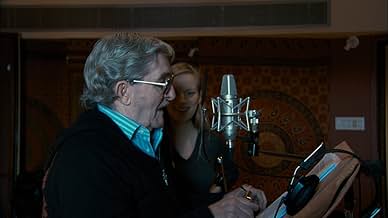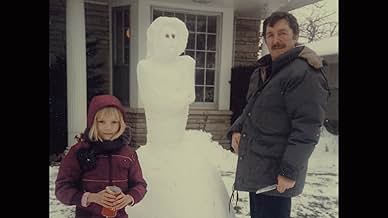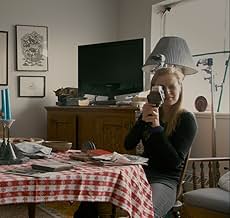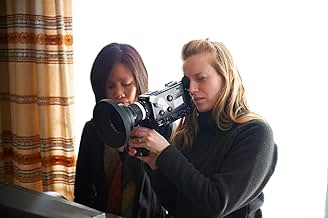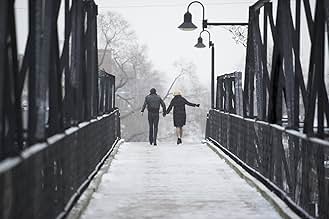Stories We Tell
- 2012
- Tous publics
- 1h 48m
A film that excavates layers of myth and memory to find the elusive truth at the core of a family of storytellers.A film that excavates layers of myth and memory to find the elusive truth at the core of a family of storytellers.A film that excavates layers of myth and memory to find the elusive truth at the core of a family of storytellers.
- Awards
- 25 wins & 44 nominations total
- Self - Storyteller
- (as Geoff Bowes)
- Director
- Writers
- All cast & crew
- Production, box office & more at IMDbPro
Featured reviews
Telling the story of her own inception, family life, and personal struggle with her own sense of being, Sarah Polley invites the audience into a world that otherwise would seem shameful and dreary but ends up rising triumphant and inspired. While documentaries often take a very serious, somber, and issue-driven approach, Polley's film proves that real life can be just as magnetic without an epiphany of theatrics or cheap camera tricks. Stories We Tell takes cinematic risks that pay off tremendously in both execution partnered with Iris Ng's stunning cinematography. This is one of the best things that the movies have offered this year yet.
When one takes on a personal subject like their family, you always run the risk of starting your film with a wall between you and the audience from the first frame. Family is one of those things that you can only appreciate when you're a part of the madness. If I sit here and tell you countless stories of brothers and sisters bickering, falling in an apple ditch, or simply the origin of our creations, a disinterest may become prevalent because what makes my story any more real than yours? Unless we have some extraordinary circumstances, family is all relative and subjective. Polley's family feels real. While there are painstakingly clear alignments between my family life and hers, the film goes beyond anything that documentaries have offered viewers before. It's not too often you grow to care about members of a family in a 108 minute stretch unless your last name is Brady, Seaver, or Winslow. It's amazing to watch one story, told from different perspectives, yielding different results and emotions. Why Polley decided to do it, I'm not so sure. Maybe it was her own way of making sense of her unfortunate hand that was dealt or perhaps it was a way of release, living with so many unanswered questions, possibly still until this day. I'm grateful she let me in to tell her story. We should all be grateful.
There are surprises, innuendos, and things that the film embraces that must be saved for anyone on the first viewing. All I can say is, Polley has likely set a new precedent and encouragement for filmmakers to do similar experiments in the future. A film such as this that follows the life of people like Jack Nicholson or Angelina Jolie would definitely build an anticipation for many to see. Stories We Tell is kind to soul and heartwarmingly relevant. A film to be remembered. The film played at this year's Montclair Film Festival and is scheduled to be released May 17, 2013.
Some true surprises occur during the course of the interviews; STORIES WE TELL goes deep in its own subtle, quiet way. Still, at the risk of sounding like a vulture, I was hoping for some darker--or at least more unusual or startling--revelations. While it's easy to understand why the real substance of the film--I don't want to give away the specifics--is critical stuff for Sarah Polley, it's nothing the average person hasn't seen or read in other works, factual or fictional. STORIES WE TELL also takes too long to show what it has to show. While the multiple perspectives are intriguing, they become ponderous and repetitive after a while.
In any event, this film functions well as a simple yet meaningful think-piece. Those who want a lot of variety, excitement, layers & twists, etc, however, may be a trifle bored by it.
On this level I liked the film and I thought it worked well, but I have to disagree with the comments made by many in regard what it else it does. Many have praised the film for showing how stories get fragmented and twisted and how perspectives etc influence their telling and indeed Polley herself lays this out as the goal for the film when she is asked towards the end. Perhaps it is because she said it so clearly that some assumed she'd done this and perhaps it is also the reason why it stood out to me that she didn't, even though I liked what she had done with it. The problem with this goal is that, while the story over the past few decades may have been half-told, twisted and gradually revealed with different people knowing or thinking different things, in the film this is not the case at all. Indeed the thing that makes the story so engaging is that it is so well structured to be gradually delivered, be clear and be interesting on its impact on the family. Everyone contributing knows the full story and while they may have different opinions on small things or motivations of others, there really isn't something like Rashomon here where the same thing is different from different angles. There are no questions left, no doubt at any point really – we get introduced, follow the story quickly and efficiently and are left at the end with everything neatly done.
The irony is that for me the film works well like this. I enjoyed the story and how well told it was and I found the contributors to be honest, human and engaging. It is a very personal and human film and this was the quality I took from it. I still had no reason to care about this specific family over any other, but it worked nonetheless. To me it is almost a shame that Polley laid out this alternative goal because she really doesn't get anywhere near achieving it and indeed if she hadn't said anything about it I would never have guessed such an objective was ever on the table.
It works for what it is, but in terms of its own goals it is unsuccessful – but it still worked for me.
Did you know
- TriviaSarah collected all the stories first. She went through all the period footage she had available. After that, she hired actors to recreate and reenact bits filmed on 8mm to complete the missing period footage. This explains why there is always "proof" of all the raconteurs stories. It works rather as flashbacks to place us in situation.
- Quotes
Michael Polley - Storyteller: When you're in the middle of a story, it isn't a story at all but rather a confusion, a dark roaring, a blindness, a wreckage of shattered glass and splintered wood, like a house in a whirlwind or else a boat crushed by the icebergs or swept over the rapids, and all aboard are powerless to stop it. It's only afterwards that it becomes anything like a story at all, when you're telling it to yourself or someone else.
- ConnectionsFeatured in At the Movies: Venice Film Festival 2012 (2012)
- SoundtracksTranquility
Written by Abraham Lass
From PLAY ME A MOVIE (Folkways Records/AH 3856)
Courtesy of TRF Production Music Libraries and Alpha Music Inc. and Smithsonian Folkways Recordings.
© 1971 Used by permission.
- How long is Stories We Tell?Powered by Alexa
Details
- Release date
- Country of origin
- Official sites
- Language
- Also known as
- Истории, которые мы рассказываем
- Filming locations
- Production company
- See more company credits at IMDbPro
Box office
- Gross US & Canada
- $1,600,145
- Opening weekend US & Canada
- $27,053
- May 12, 2013
- Gross worldwide
- $2,641,053
- Runtime
- 1h 48m(108 min)
- Color
- Sound mix
- Aspect ratio
- 1.85 : 1






